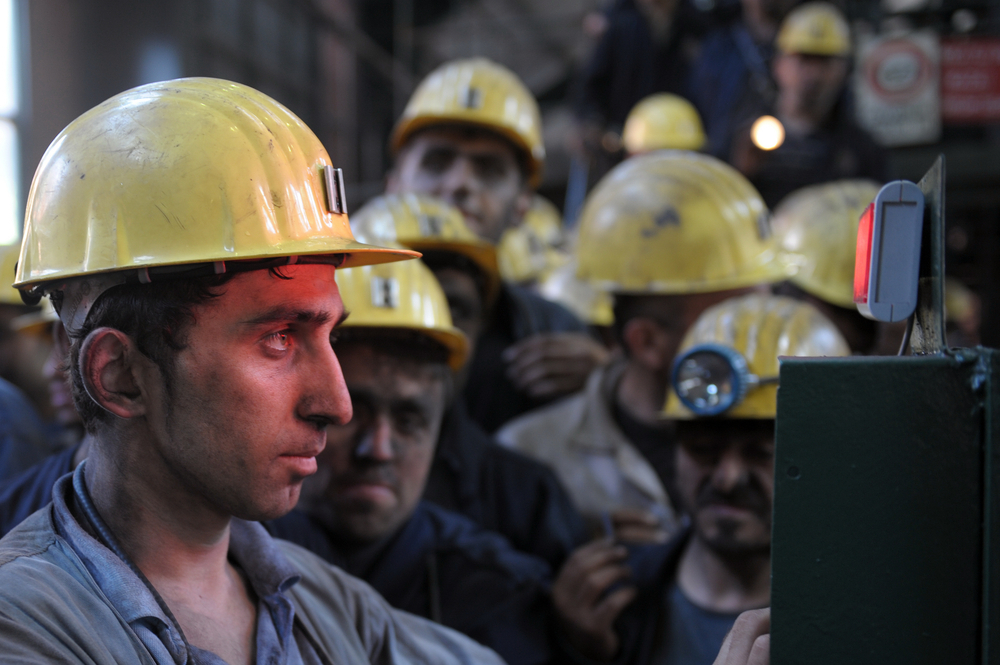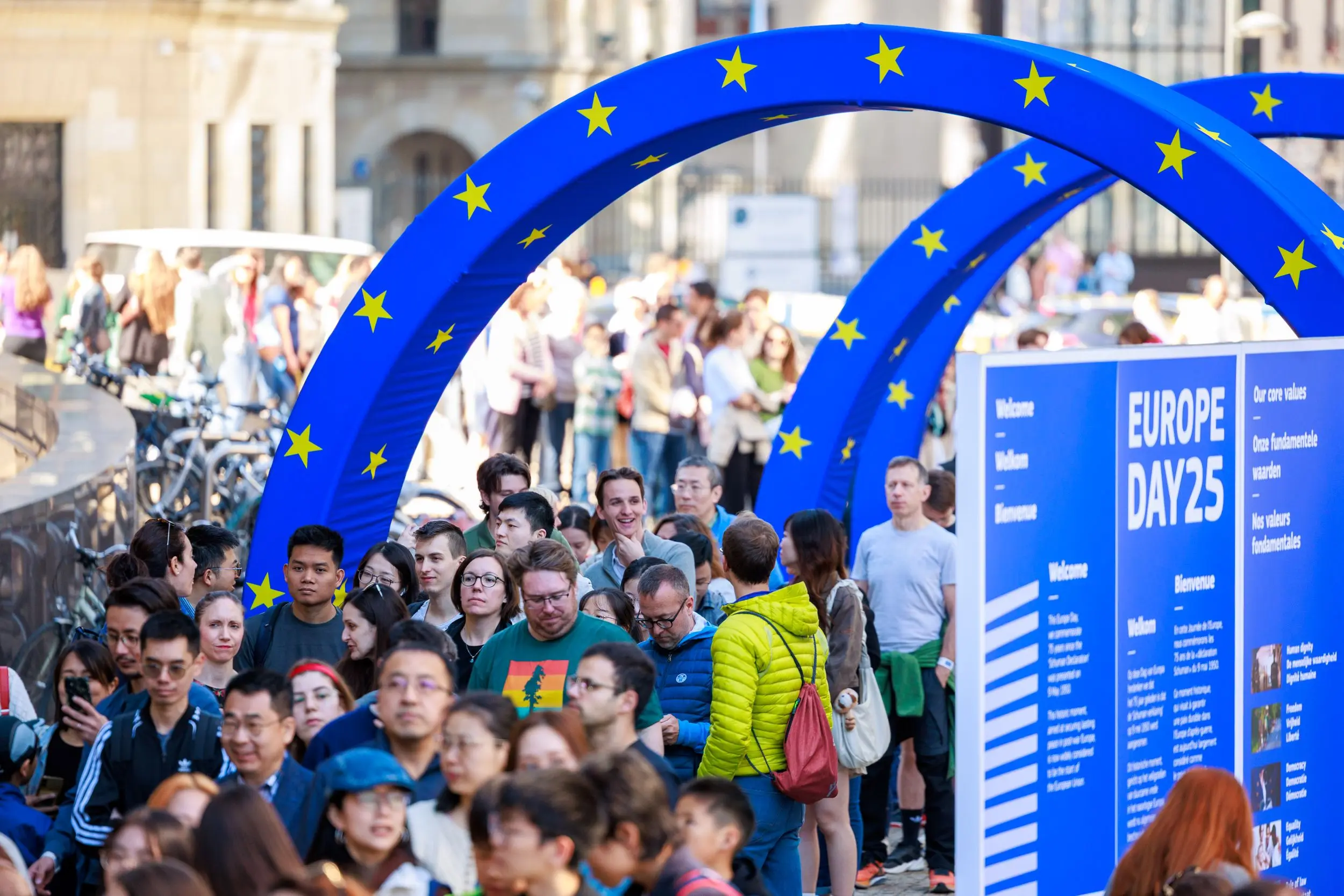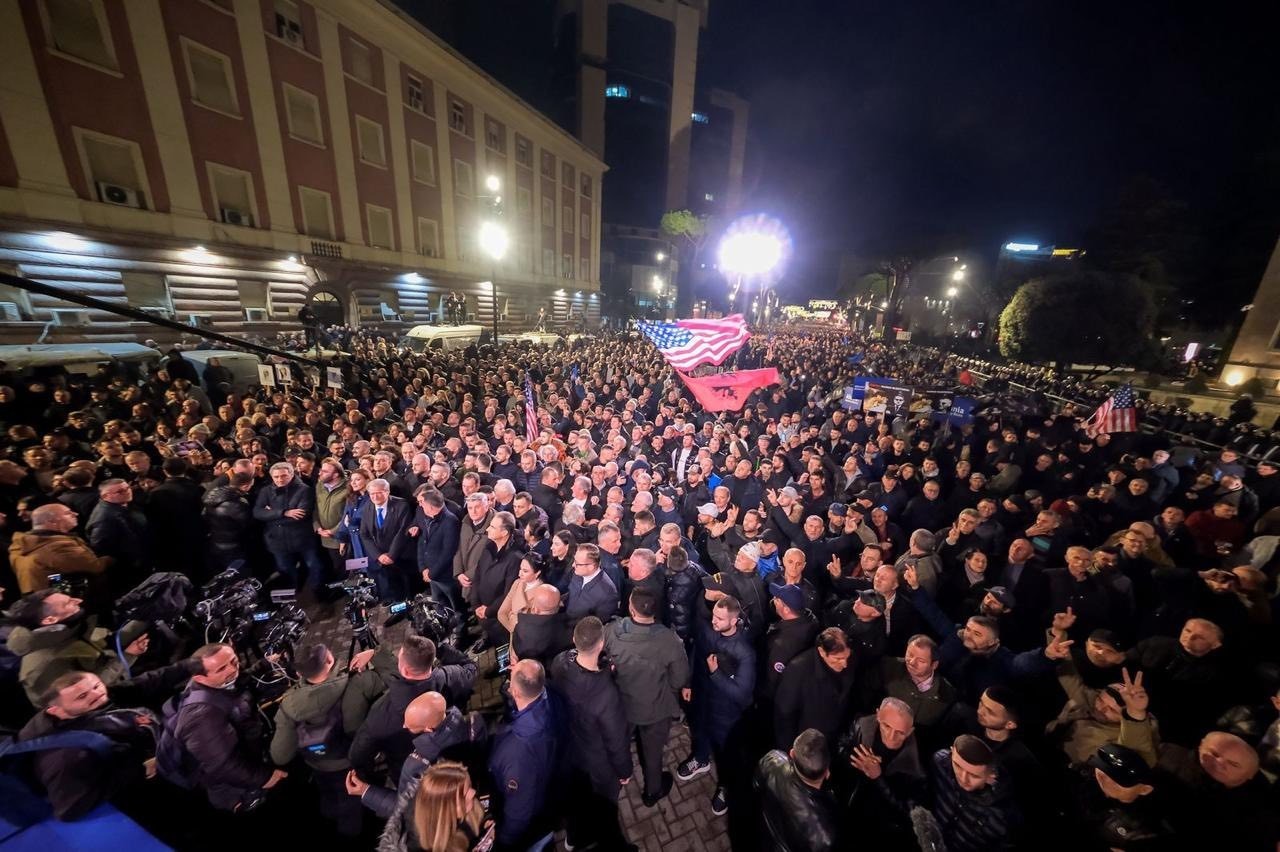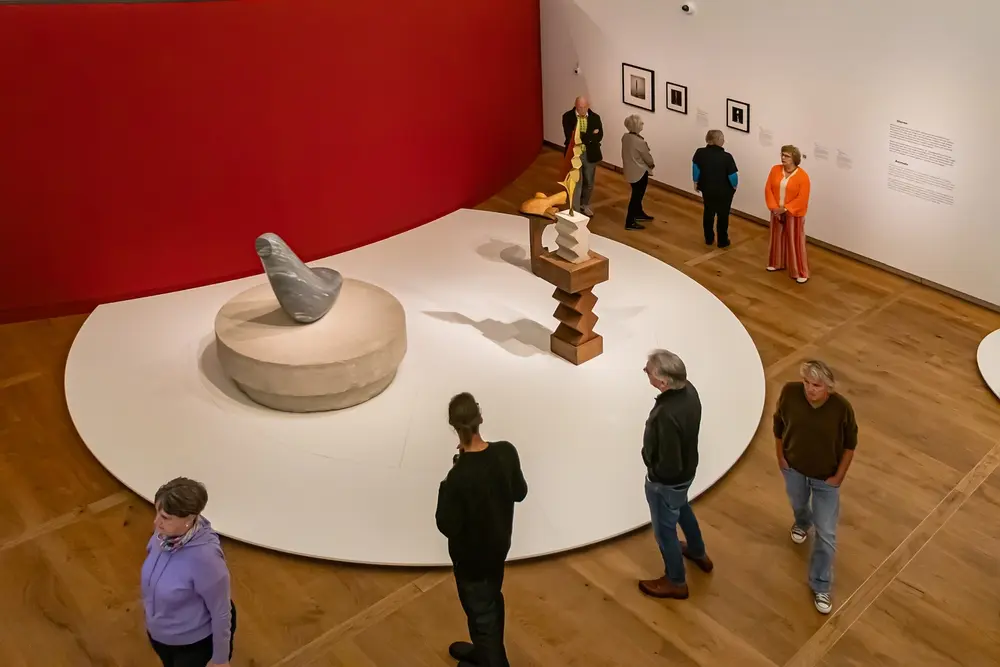Marx, Mohammed, and “wudu capitalism”. A meeting with Recep İhsan Eliaçık
Synthesise and integrate two "failed", seemingly antithetical political thoughts, the Marxist and the Islamic one. This is what EKP-dominated Turkey needs according to Recep İhsan Eliaçık, Turkish thinker and activist, animator of the first collective of "anti-capitalist Muslims”

Marx-Maometto-e-il-capitalismo-con-wudu-.-Un-incontro-con-Recep-Ihsan-Eliacik
Miners in Turkey - © thomas koch/Shutterstock
Can one be Muslim and anti-capitalist? Some have been for years: in Istanbul, in the former Greek-Orthodox district of Balat, the office of theorist, thinker, and activist Recep İhsan Eliaçık is dotted with books of all kinds and dedications (from Beşiktaş fans to numerous Turkish political figures) which testify to his diverse life and intellectual experience. Originally from Kayseri, as a student he fought in some Islamist and nationalist political groups, to then end up in prison following the military coup of 1980. Imprisonment would bring him into contact with militants of the revolutionary left, in dialogues and meetings that would change his vision: «I realised that I was looking at the world from a different perspective. Once I returned to freedom, I understood that Islam was not necessarily what I had learnt from my parents, but could also be read in the light of Marxist thought and could be seen as a religion attentive to the poor and the exploited".
Then, theoretical work with articles, books, and conferences and the birth of a collective of "anti-capitalist Muslims" (Antikapitalist Müslümanlar) which organises collective readings of the Koran in a Marxist key and participates in various political demonstrations, such as those of the First May. “Property belongs to Allah, work belongs to working men and women. Down with global capitalism”, read the banner of the group this year.
Islam and Marxism: aren’t they two antithetical terms?
If we take their original sources, beyond their different historical embodiments (What is Islam really? Islam is what emerged during the Umayyads, the Abbasids, or the Ottomans, or in the sects present in today’s Turkey? Similarly, is Marxism the one that established itself as a bureaucratic dictatorship in the Soviet Union?), we note that there are similarities. Both place a strong emphasis on equality. Islam claims that all people are equal before God, just as Marxism claims that all people are equal as human beings.
Where does the emphasis on equality in Islam come from? Let’s look at what the Prophet did in Mecca and Medina: he freed the slaves, took from the rich to give to the poor, i.e. ensured equality between people. We are talking about Islam in the 7th century and, therefore, we are using religious language because it was the simplest method of reaching the greatest number of people. The language of Marxism, by contrast, is more refined. Das Kapital is a "world/universal" critique of capitalism: it tells us what inequality consists of and how it is used by one class to the detriment of another, down to the smallest detail. Yet, both attempt to address the problem of universal inequality, albeit from different points of view. In this sense, I think that the tension towards equality is a constant in human history and I consider phenomena such as the Enlightenment or events such as the French Revolution as a sort of "secular continuation" of Islam. I see Islam and Marxism as two parts of the same "scream" that calls for equality. Both have failed in history, but share the same destiny that has yet to be fulfilled.
In the early stages of the birth of the Soviet Union there were those who posed the question of the synthesis between Islam and Marxism, such as Mirsaid Sultan-Galiev. In general, what are your theoretical influences?
Sultan-Galiev is not a Muslim theorist. He was only a Muslim in terms of identity, not faith, and he claimed to be an atheist. On the contrary, I profess the Islamic faith and feel I belong to the Muslim culture. I studied Islamic theology, I know the theory, the Koran, the thought of Islam. So my work differs from the parable of figures like Sultan-Galiev. In this regard I can say that I was most influenced by Iranian Ali Shariati, one of the architects of the Muslim left in Iran. I have read many of his books. Ali Shariati is Shiite, I am Sunni. Shariati practically united Islam, the left, and Marxism. Therefore, he had great impact on the Iranian revolution, even though he was killed in 1979. Or there is Islamic philosophy professor Hasan Hanafi in Egypt, who wrote several books.
However, what Sultan-Galiev pointed out in the early years of the Bolshevik revolution was that an atheist-type policy would not work in Islamic-influenced territories. In fact, he said that it was necessary to develop a policy of Islamic Marxism and invited teachers and theorists to develop this discourse and to construct such a synthesis. Here, perhaps I can ideally be considered one of these people to whom Sultan-Galiev (who was killed during the Stalinist purges) appealed.
In Turkey you are a public figure and there is a collective with which you carry out theoretical work and political activity. So do you think that your voice is heard?
In 2002 I moved to Istanbul and started publishing books and writing articles for some magazines. A few years later I attracted attention because I had started criticising many political leaders in Turkey, pointing out that through the state they were pursuing their private interest and not the public one. But, above all, the years from 2011 to 2013 were crucial for us. In 2011, we organised a series of protests in front of some of the most luxurious tables where the richest people celebrated iftar [the dinner with breaks the fast every evening during Ramadan, ed.]: by contrast, we put some cheese and bread on the ground and we opened the iftar in our own way. People looked at us with curious and somewhat shocked eyes. In 2012, we gathered at the mosque to say a funeral prayer for the workers who had lost their lives and later joined the May Day demonstrations. More than a thousand people attended our parade. Finally, in 2013 we took part in the Gezi Park resistance. I led the Friday prayers that took place in Taksim Square. Our way of understanding Islam was a scandal for many.
But for many others, these were opportunities to discover themselves as "anti-capitalist Muslims". We have indeed met many people who perceive Islam like us, who care about both the Islamic faith and the principles of equality. But it’s not something we created: it was just something underground that had to come to the surface. Now all together we participate in May Day marches, organise cultural activities, carry out shared readings of the Koran in an anti-capitalist key. It is not always welcomed: however, it is an unprecedented phenomenon for the Turkish context.
I imagine that your vision differs from that of the current party (AKP) which presents itself as "Islamic" or "pro-Islamic"…
As I said, one of the main characteristics of our thinking is anti-capitalism. The AKP’s vision is totally the opposite: it is a political force that does not raise any objection or criticism of the capitalist system, rather it encourages it. Erdoğan’s is "wudu capitalism (the Muslim rite of ablution)": exploitation is cleaned up and legitimised through a religious cover. If we then look at the actions they have carried out in over twenty years of managing power, we see that they have enriched themselves through the state, stealing public resources, and that they enrich their own supporters. I consider myself an anti-capitalist Muslim in my religious awareness and a radical democrat in my political stance. I support pluralism, and not the dictatorship of the majority, as well as the formal and substantial equality of all people: religious and non-religious, men and women, etc.
In general, how do you assess the different examples of political Islam that have arisen in the area?
I am against the idea that Islam should become a "state". I find forms of Islamic state or Islamic republic controlled by ISIS or the Taliban, or implemented in Saudi Arabia or Iran, unjust because they subject both Muslims and non-Muslims to the laws of Islam. On the contrary, the teaching of Islam is really accomplished if justice is ensured, if killings, thefts, slanders, harassments, rape, and corruption are avoided – and this even if the word "Islam" is not mentioned in the name of that state. The problem of many religious communities in different contexts is that they do not present an alternative and do not oppose capitalism, a system which currently dominates the whole world. That is why we place particular emphasis on this. For this reason, we also think that models such as the Iranian, Saudi, Egyptian, or even Turkish ones are substantially "failed".
I think of the Islamic world in the future. The French Revolution affirmed the values of equality, liberty, fraternity. The Russian Revolution established work as the supreme value. Republican revolutions in Turkey spoke of democracy and the Republic, abolishing the sultanate and dynastic power. Even the Islamic communities from all over the world must be able to reach these ideas; they must fight the new forms of sultanate. They must be able to talk about human rights, democracy, equality, freedom, work. Marxism opposes capitalism but lacks a religious dimension, while Islam satisfies a strong sense of religiosity but does not develop criticisms of capitalism. Perhaps, both have failed due to their complementary lack: it’s time to try to integrate them.
Marx, Mohammed, and “wudu capitalism”. A meeting with Recep İhsan Eliaçık
Synthesise and integrate two "failed", seemingly antithetical political thoughts, the Marxist and the Islamic one. This is what EKP-dominated Turkey needs according to Recep İhsan Eliaçık, Turkish thinker and activist, animator of the first collective of "anti-capitalist Muslims”

Marx-Maometto-e-il-capitalismo-con-wudu-.-Un-incontro-con-Recep-Ihsan-Eliacik
Miners in Turkey - © thomas koch/Shutterstock
Can one be Muslim and anti-capitalist? Some have been for years: in Istanbul, in the former Greek-Orthodox district of Balat, the office of theorist, thinker, and activist Recep İhsan Eliaçık is dotted with books of all kinds and dedications (from Beşiktaş fans to numerous Turkish political figures) which testify to his diverse life and intellectual experience. Originally from Kayseri, as a student he fought in some Islamist and nationalist political groups, to then end up in prison following the military coup of 1980. Imprisonment would bring him into contact with militants of the revolutionary left, in dialogues and meetings that would change his vision: «I realised that I was looking at the world from a different perspective. Once I returned to freedom, I understood that Islam was not necessarily what I had learnt from my parents, but could also be read in the light of Marxist thought and could be seen as a religion attentive to the poor and the exploited".
Then, theoretical work with articles, books, and conferences and the birth of a collective of "anti-capitalist Muslims" (Antikapitalist Müslümanlar) which organises collective readings of the Koran in a Marxist key and participates in various political demonstrations, such as those of the First May. “Property belongs to Allah, work belongs to working men and women. Down with global capitalism”, read the banner of the group this year.
Islam and Marxism: aren’t they two antithetical terms?
If we take their original sources, beyond their different historical embodiments (What is Islam really? Islam is what emerged during the Umayyads, the Abbasids, or the Ottomans, or in the sects present in today’s Turkey? Similarly, is Marxism the one that established itself as a bureaucratic dictatorship in the Soviet Union?), we note that there are similarities. Both place a strong emphasis on equality. Islam claims that all people are equal before God, just as Marxism claims that all people are equal as human beings.
Where does the emphasis on equality in Islam come from? Let’s look at what the Prophet did in Mecca and Medina: he freed the slaves, took from the rich to give to the poor, i.e. ensured equality between people. We are talking about Islam in the 7th century and, therefore, we are using religious language because it was the simplest method of reaching the greatest number of people. The language of Marxism, by contrast, is more refined. Das Kapital is a "world/universal" critique of capitalism: it tells us what inequality consists of and how it is used by one class to the detriment of another, down to the smallest detail. Yet, both attempt to address the problem of universal inequality, albeit from different points of view. In this sense, I think that the tension towards equality is a constant in human history and I consider phenomena such as the Enlightenment or events such as the French Revolution as a sort of "secular continuation" of Islam. I see Islam and Marxism as two parts of the same "scream" that calls for equality. Both have failed in history, but share the same destiny that has yet to be fulfilled.
In the early stages of the birth of the Soviet Union there were those who posed the question of the synthesis between Islam and Marxism, such as Mirsaid Sultan-Galiev. In general, what are your theoretical influences?
Sultan-Galiev is not a Muslim theorist. He was only a Muslim in terms of identity, not faith, and he claimed to be an atheist. On the contrary, I profess the Islamic faith and feel I belong to the Muslim culture. I studied Islamic theology, I know the theory, the Koran, the thought of Islam. So my work differs from the parable of figures like Sultan-Galiev. In this regard I can say that I was most influenced by Iranian Ali Shariati, one of the architects of the Muslim left in Iran. I have read many of his books. Ali Shariati is Shiite, I am Sunni. Shariati practically united Islam, the left, and Marxism. Therefore, he had great impact on the Iranian revolution, even though he was killed in 1979. Or there is Islamic philosophy professor Hasan Hanafi in Egypt, who wrote several books.
However, what Sultan-Galiev pointed out in the early years of the Bolshevik revolution was that an atheist-type policy would not work in Islamic-influenced territories. In fact, he said that it was necessary to develop a policy of Islamic Marxism and invited teachers and theorists to develop this discourse and to construct such a synthesis. Here, perhaps I can ideally be considered one of these people to whom Sultan-Galiev (who was killed during the Stalinist purges) appealed.
In Turkey you are a public figure and there is a collective with which you carry out theoretical work and political activity. So do you think that your voice is heard?
In 2002 I moved to Istanbul and started publishing books and writing articles for some magazines. A few years later I attracted attention because I had started criticising many political leaders in Turkey, pointing out that through the state they were pursuing their private interest and not the public one. But, above all, the years from 2011 to 2013 were crucial for us. In 2011, we organised a series of protests in front of some of the most luxurious tables where the richest people celebrated iftar [the dinner with breaks the fast every evening during Ramadan, ed.]: by contrast, we put some cheese and bread on the ground and we opened the iftar in our own way. People looked at us with curious and somewhat shocked eyes. In 2012, we gathered at the mosque to say a funeral prayer for the workers who had lost their lives and later joined the May Day demonstrations. More than a thousand people attended our parade. Finally, in 2013 we took part in the Gezi Park resistance. I led the Friday prayers that took place in Taksim Square. Our way of understanding Islam was a scandal for many.
But for many others, these were opportunities to discover themselves as "anti-capitalist Muslims". We have indeed met many people who perceive Islam like us, who care about both the Islamic faith and the principles of equality. But it’s not something we created: it was just something underground that had to come to the surface. Now all together we participate in May Day marches, organise cultural activities, carry out shared readings of the Koran in an anti-capitalist key. It is not always welcomed: however, it is an unprecedented phenomenon for the Turkish context.
I imagine that your vision differs from that of the current party (AKP) which presents itself as "Islamic" or "pro-Islamic"…
As I said, one of the main characteristics of our thinking is anti-capitalism. The AKP’s vision is totally the opposite: it is a political force that does not raise any objection or criticism of the capitalist system, rather it encourages it. Erdoğan’s is "wudu capitalism (the Muslim rite of ablution)": exploitation is cleaned up and legitimised through a religious cover. If we then look at the actions they have carried out in over twenty years of managing power, we see that they have enriched themselves through the state, stealing public resources, and that they enrich their own supporters. I consider myself an anti-capitalist Muslim in my religious awareness and a radical democrat in my political stance. I support pluralism, and not the dictatorship of the majority, as well as the formal and substantial equality of all people: religious and non-religious, men and women, etc.
In general, how do you assess the different examples of political Islam that have arisen in the area?
I am against the idea that Islam should become a "state". I find forms of Islamic state or Islamic republic controlled by ISIS or the Taliban, or implemented in Saudi Arabia or Iran, unjust because they subject both Muslims and non-Muslims to the laws of Islam. On the contrary, the teaching of Islam is really accomplished if justice is ensured, if killings, thefts, slanders, harassments, rape, and corruption are avoided – and this even if the word "Islam" is not mentioned in the name of that state. The problem of many religious communities in different contexts is that they do not present an alternative and do not oppose capitalism, a system which currently dominates the whole world. That is why we place particular emphasis on this. For this reason, we also think that models such as the Iranian, Saudi, Egyptian, or even Turkish ones are substantially "failed".
I think of the Islamic world in the future. The French Revolution affirmed the values of equality, liberty, fraternity. The Russian Revolution established work as the supreme value. Republican revolutions in Turkey spoke of democracy and the Republic, abolishing the sultanate and dynastic power. Even the Islamic communities from all over the world must be able to reach these ideas; they must fight the new forms of sultanate. They must be able to talk about human rights, democracy, equality, freedom, work. Marxism opposes capitalism but lacks a religious dimension, while Islam satisfies a strong sense of religiosity but does not develop criticisms of capitalism. Perhaps, both have failed due to their complementary lack: it’s time to try to integrate them.









